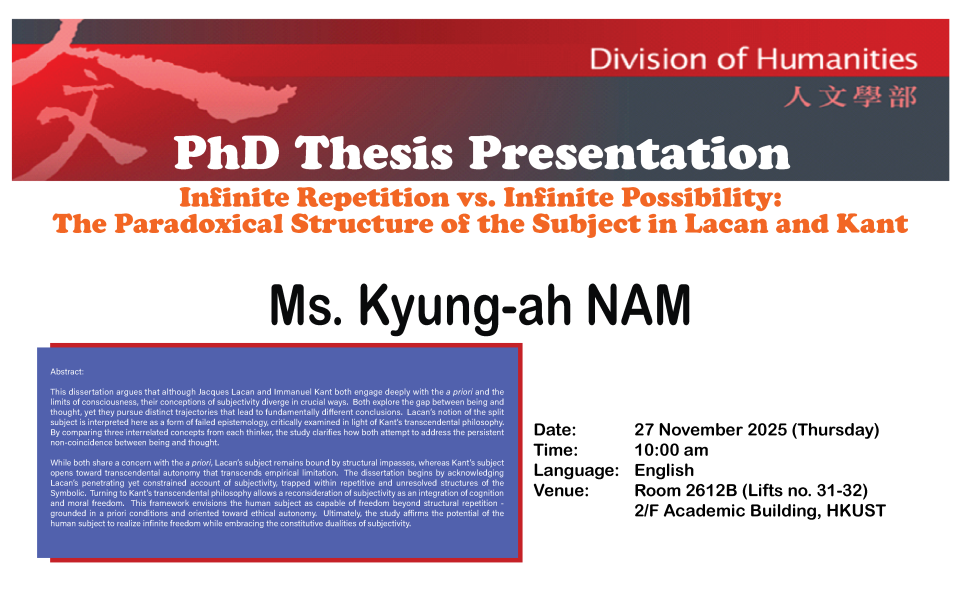Abstract:
This dissertation argues that although Jacques Lacan and Immanuel Kant both engage deeply with the a priori and the limits of consciousness, their conceptions of subjectivity diverge in crucial ways. Both explore the gap between being and thought, yet they pursue distinct trajectories that lead to fundamentally different conclusions. Lacan’s notion of the split subject is interpreted here as a form of failed epistemology, critically examined in light of Kant’s transcendental philosophy. By comparing three interrelated concepts from each thinker, the study clarifies how both attempt to address the persistent non-coincidence between being and thought.
While both share a concern with the a priori, Lacan’s subject remains bound by structural impasses, whereas Kant’s subject opens toward transcendental autonomy that transcends empirical limitation. The dissertation begins by acknowledging Lacan’s penetrating yet constrained account of subjectivity, trapped within repetitive and unresolved structures of the Symbolic. Turning to Kant’s transcendental philosophy allows a reconsideration of subjectivity as an integration of cognition and moral freedom. This framework envisions the human subject as capable of freedom beyond structural repetition—grounded in a priori conditions and oriented toward ethical autonomy. Ultimately, the study affirms the potential of the human subject to realize infinite freedom while embracing the constitutive dualities of subjectivity.
